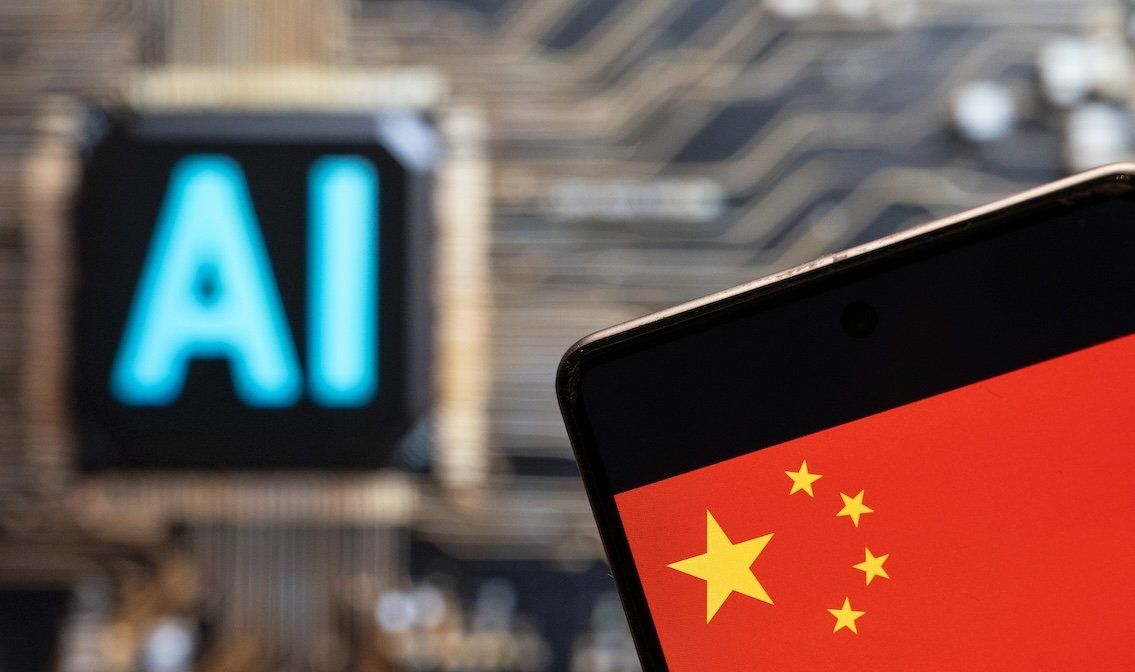In this photo illustration, the People's Republic of China flag is displayed on a smartphone with an Artificial intelligence chip and symbol in the background.
Budrul Chukrut / SOPA Images/Sipa USA via Reuters
In the first half of 2024, capital spending on AI infrastructure by the Chinese tech giants Alibaba, Tencent, and Baidu doubled year-over-year to about $7 billion. The spending spree reflects a thirst for artificial intelligence despite ever-stringent US regulations limiting their access to powerful chips, data centers, and AI models. TikTok parent company ByteDance and an AI startup called Moonshot are also boosting their spending.
Much of China’s AI industry is reliant on low-grade chips from US chipmaker Nvidia, which is barred from selling its top models because of US export controls. (For more on the US-China chip race, check out GZERO AI’s interview with Trump export control chief Nazak Nikakhtar from last week’s edition.)
